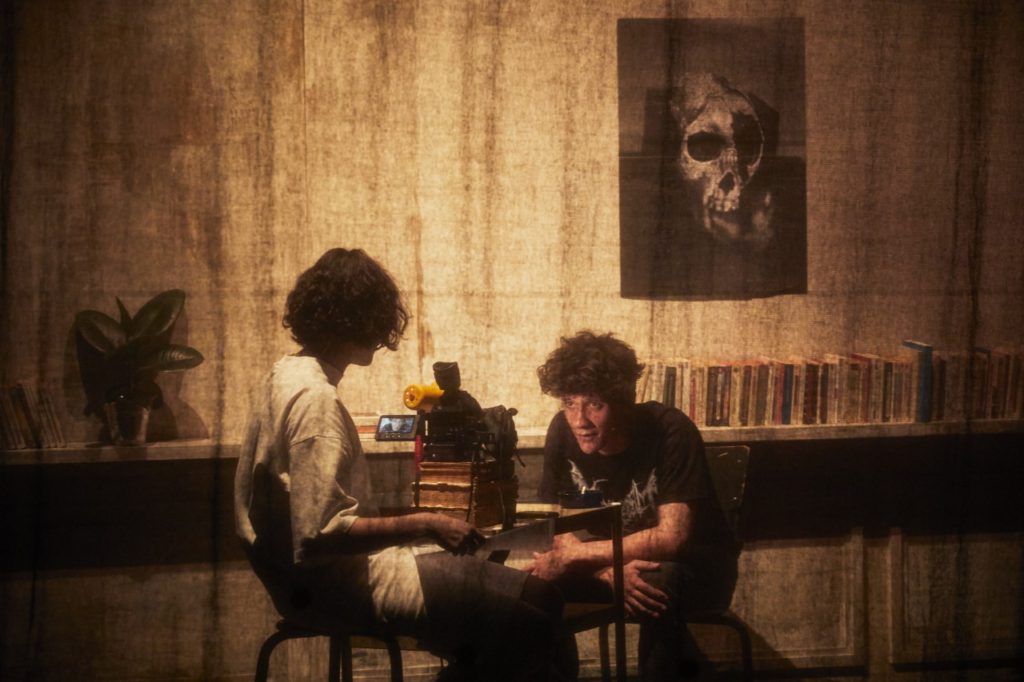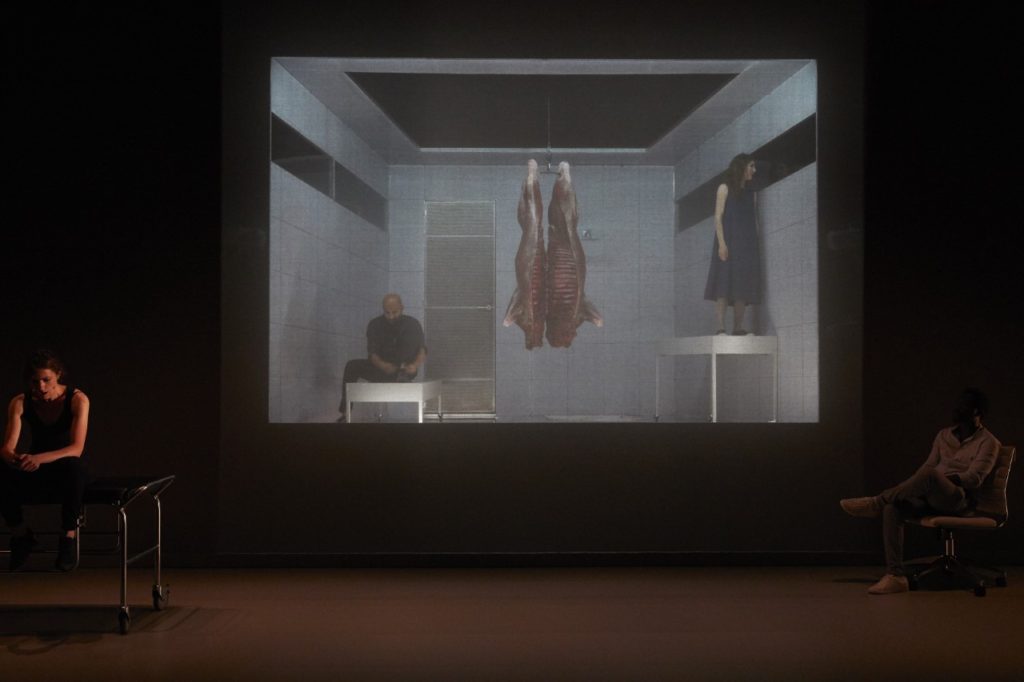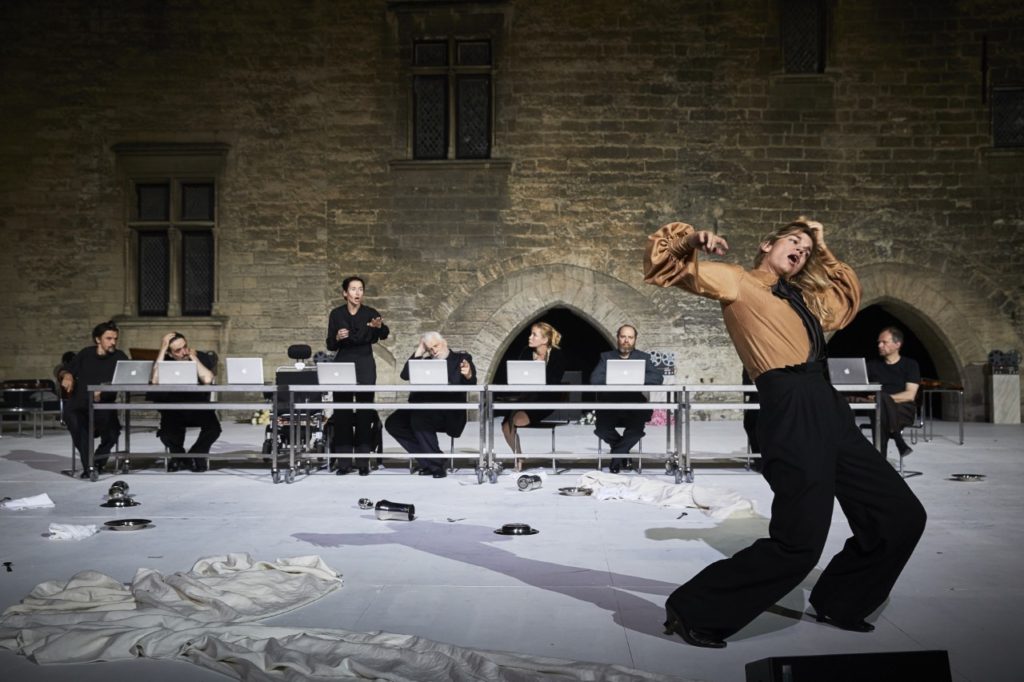Avignon 2019: Imagining two plays that embody the ghosts of Europe. ‘Dévotion’ and ‘Nous l’Europe’

Moving along with the themes of history, memory and forgetting – the focus of Paul Ricœur’s famous philosophical book on the limits and ethical implications of understanding the past – Avignon 2019 offers two chorus performances — Dévotion – Dernière offrande aux dieux morts and Nous, l’Europe, Banquet des peoples — that propose two different responses to the question what constitutes the collective identity of the Europe of the future.
Dévotion – Dernière offrande aux dieux morts, written and directed by Clément Bondu together with the 2019 graduation class of l’École supérieure d’art dramatique de Paris (PSPBB). This is the staging of the version of the new Europe as it is experienced and imagined by the iGen / Gen Z generation of the 20 something plus. Angry, confused, desperately seeking love and hope, this generation is fed up with the cynicism of the world, its politics, its everyday life and its arts. A product of digitalization, urbanization and overt commercialization of the everyday, the iGens also struggle with the cultural heritage of the old Europe, the heritage that seems incapable of providing them with either a cure from cynicism or a direction into the better future they are seeking.
With no clear plot or developed characters, the production builds a theatrical environment of borrowings, references, and cultural stereotypes. An empty stage, it uses old and new theatrical technologies, live video recording, dance and direct narration to evoke the atmosphere of Parisian night clubs and the world of modern politics, full of hollow slogans and promises. Visually and thematically, it presents Europe swinging on the edge of the abyss, ready to fall into the hands of new dictators and devastating darkness. Hope is nowhere to be seen. …

